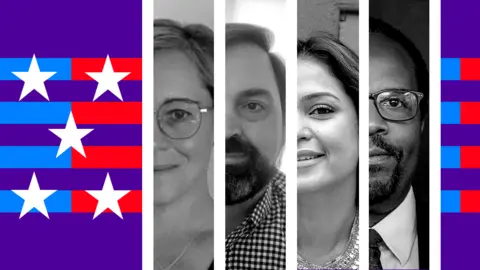 BBC
BBCMillions of people migrate to the United States every year, and the number of those who become US citizens – and therefore earn the right to vote – is growing.
One in 10 eligible voters are naturalised citizens – representing a record share, according to a recent Pew Research Center study.
The BBC spoke with several naturalised citizens who will be voting in this election – some of whom will vote for the first time, while others have been voting for years.
We asked them about their experience participating in a US election. We start with a voter who has plenty to say about campaign rhetoric and fundraising.
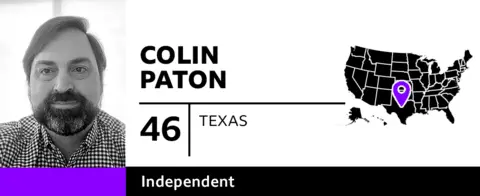
This new US citizen was born in Melbourne, Australia, and now lives in Houston, Texas. He identifies as a libertarian-leaning independent but doesn’t yet know who he will back in his first election – he might even leave the presidential section blank.
To be completely frank, I’m absolutely petrified that a potential leader of the country can raise $1bn (£770m) from donors.
The money in politics absolutely scares me and the fact that we are trending extreme, at least in the rhetoric, whether or not we see that in actions, is a bit different [to Australia].
There is a difference between the way people who come to the country look at politics and the people who are born in the country look at politics.
I think those of us that come here recognise the difference between rhetoric and action quite readily. I think there are some people that do get very caught up in the rhetoric.
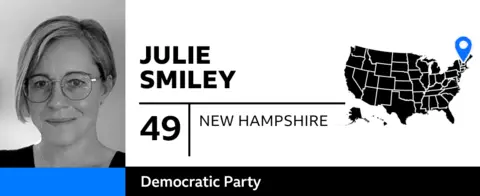
This Democrat lives in New Hampshire and is originally from Wolverhampton in the UK. She became a US citizen in the early 2000s and supports Kamala Harris.
One of the things that is of huge concern to someone who wasn’t raised in the US is the spending on political campaigns. In the UK, there are regulations limiting spending. There’s so much more that could be done with that money.
The localisation of decision-making also concerns me. While I can understand to some extent the rationale behind having decisions made locally, when you get down to the school-board level, I would prefer to see educated professionals making some of the more impactful decisions.
The electoral college really surprised me as to how that works and that each person’s vote is not of equal value. I think we need to overturn that.
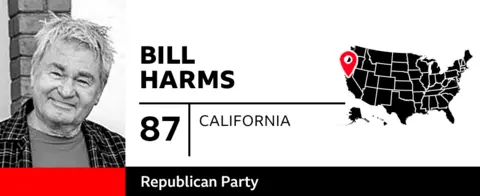
This Republican has already cast his ballot for Trump in Sacramento, California. He’s retired and emigrated to the United States from Germany in 1957.
The last administration has ruined our country in my opinion. We voted early… so we’re excited, actually, more than nervous.
The main thing [that surprised me about politics in the US] would be the total lack of responsibility by politicians as to immigration and the economy, especially the last administration. I think it was the worst this country has ever experienced.
The other thing is the fighting between parties. It was years ago Democrats and Republicans got along. They had America on their mind first. Now, it’s infighting, politically speaking. It’s awful in my opinion.
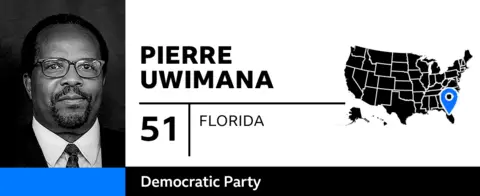
This registered Democrat lives in Florida and is still making up his mind about who he’ll support. He is from Rwanda and became a US citizen in October, making this his first US election.
I’m still waiting to hear from both candidates about their positions on the issues that I feel are very important to me. Once I’m clear on those issues, then I will decide on who to vote for.
One of them is immigration. As an immigrant – having gone through the immigration system when I came to this country – this is very dear to me. So far, I don’t see both of those candidates being clear on what they will do on immigration. I don’t like policy that will disintegrate our families.
I feel like immigrants, having come from different backgrounds, they can bring different opinions on how democracy can work. For instance… the electoral college system, it’s not fair to me.
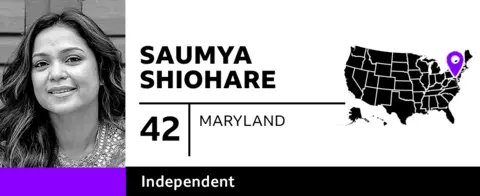
This independent voter is originally from India and moved to the US almost 18 years ago. A self-employed content creator, she became a US citizen in 2019 and plans to back Harris.
We are actually nervous [about the election]. A few of our friends were just talking about it and one of them actually started to cry because she was so worried about the future. It’s so uncertain and things are still going downhill. Everybody’s scared about this.
It’s going to be [a vote for] Kamala Harris because of two obvious reasons: she’s of Indian origin and she is a woman.
Women need to be in leadership roles, which is a good thing, and that’s going to put her on the pedestal. I feel like she’s somebody who will think not aggressively, but smart and logically and address some of the common problems that America’s democracy has been plagued with.
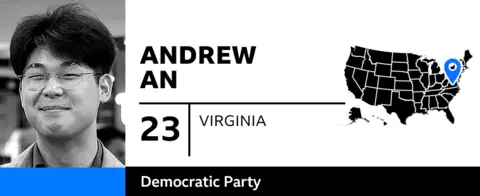
This Democrat was born in the Philippines and was a South Korean citizen before moving to the US when he was 10 years old. He will be voting for Harris.
Immigration has been at the front of my mind largely because I think there’s this odd narrative going on in the United States… folks like Donald Trump, he’s saying we only want to bring the best and finest individuals to the United States.
If you look throughout US history, one of the defining characteristics of an immigrant is not who has the most degrees or who’s the most educated. I think the quality of resilience and resourcefulness is a defining characteristic of an American immigrant and of America as a whole.
A lot of them were down on their luck with very little in their pockets. I could say the same for my mother when she and I immigrated here, but I think it’s that resourcefulness and that drive to climb up the ladder that makes America great.
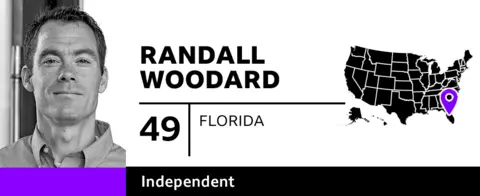
This college professor grew up in Canada and became a US citizen six years ago. An independent, he voted by mail for the presidential candidate representing the American Solidarity party, a Christian democratic party.
I didn’t grow up with a specific American political identity so I didn’t have a core attachment or a tonne of assumptions about ‘I’m a Democrat’ or ‘I’m a Republican’.
My own faith probably has a bigger impact on how I see the world than any political party. I would say that that ends up being the lens through which I actually evaluate the political parties and find them both lacking, but also find them both strong in certain areas.
One thing I’ve learned over time is it matters, but it’s a wider system that has checks and balances and ways to ensure the future stability – economically and politically. I’ve got a lot of faith in the institutions. I love living in this country and I never fear that the sky is falling.

In the lead-up to election day, BBC Voter Voices is hearing from Americans around the country about what matters to them.
Are you an American voter? Want to join in? Apply to be featured in future BBC stories here.
Do you live outside the US and have a question out the election? Tell us here or use the form below.







